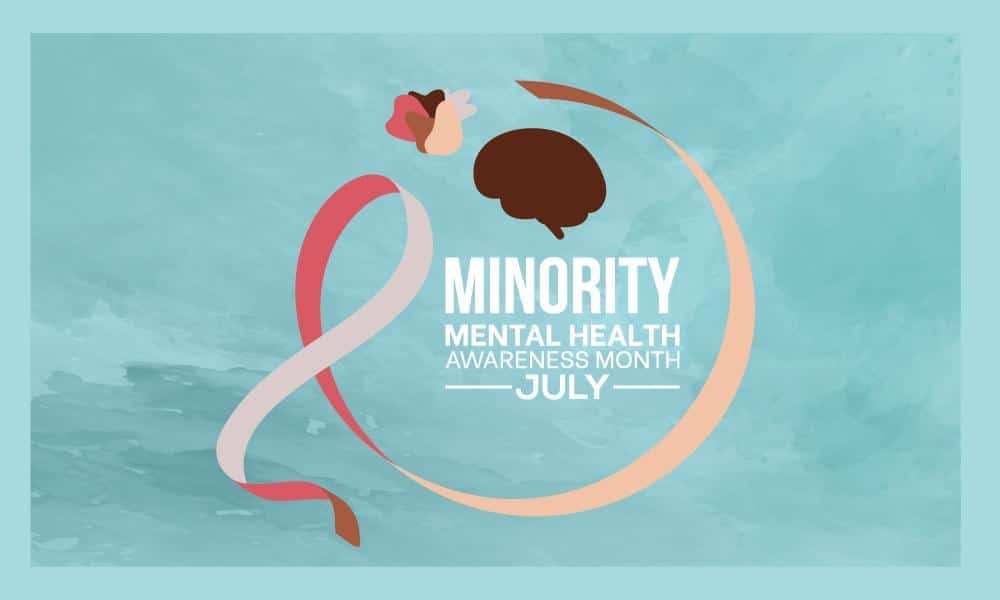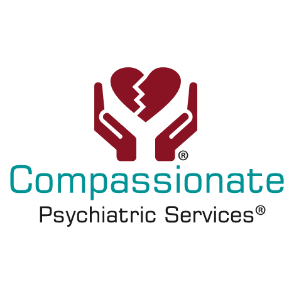
National Minority Mental Health Awareness Month is observed each year in July to bring awareness to the unique struggles that minority communities face regarding mental illness in the United States.
What groups are minorities?
- Muslim Americans
- LGBTQ community
- Refugees, asylum-seekers, and survivors of forced Displacement
- Women
- Asian American/Pacific Islanders
- African Americans
What are the common barriers to receiving Mental Health Care for minority groups?
- Cost/Insurance- Many cannot afford the cost of mental health care or have no health insurance
- Structural Barriers – Inadequate public transportation, inconvenience, not knowing how or where to access services
- Perceived Low Need – Did not feel the need for services or thought that they could handle the problem without professional treatment
- Prejudice/Discrimination – Felt mental health service use might result in negative effects on relationships and employment
- Concerns Over Effectiveness – Do not think Services would help
What issues affect minorities who struggle with mental health?
When a member of a minority community faces a mental health issue, they often must deal with issues surrounding access to care. Here are common obstructions to mental Health access:
- Cost of care often determines whether minority groups can access mental health care. Many don’t have health care because it is cost prohibitive, or they don’t have the means to pay for private therapy.
- There are cultural and familial stigmas around mental health care that becomes an issue with accessing care. Mental health issues and treatment are often taboo among some minority communities and admitting one’s struggle with mental health can be shameful.
- Language barriers cause challenges in accessing mental health care, especially for older members of minority groups, recent immigrants, and members of the Latino communities.
What can you do to increase the focus on and raise awareness of minority mental health issues?
Anyone can participate in Minority Mental Health Month. Here are things you can do to take an active role in making a difference for Minority Mental Health:
- share supportive and educational content as part of NAMI’s You Are Not Alone campaign
- post supportive content on social media using the hashtags #NotAlone, #MinorityMentalHealth, #NotACharacterFlaw, and #MMHAM.
- Share your personal mental health struggle on social media and NAMI’s Personal Stories campaign to decrease the stigma around mental health.
Why is there such a disparity between minority mental health care and the rest of the population?
- Inferior mental health care is available due to the lack among mental health providers
- Lack of understanding of different mental health needs across minority groups
- Language barriers
- Cultural insensitivities that lead to adverse health outcomes
- Provider discrimination against minority groups
- Social determinants of health (SDOH)- the conditions of your environment, where people are born, live, work, learn, play, and pray, have an enormous impact on mental health
- Lack of income
Providers help close the gap in minority mental health by educating themselves, their colleagues, and communities on the ethnic and cultural gaps among patient populations. By considering how their own values and prejudices influence their interactions with minority group patients. Make sure that there is a safe place for those in the minority groups to help them feel heard and understood. Communities at the highest risk for discrimination are the same communities that are perpetually marginalized by the negative impact of SDOH.
Providing access to necessary resources and additional support for these patients is critical. Here are some places you can start:
- Education and awareness: There is a stigma associated with mental illness from the lack of education and awareness. By educating people about mental illness and the part it plays in overall well-being
- Universal mental health care could improve access for all minority groups.
- Advocacy and outreach
- Integrated behavioral and primary health care could reduce disparities in access to care and could increase the odds of identifying a patient’s mental illness
How Compassionate Psychiatric Services can h:
Compassionate Psychiatric Services strives to provide inclusive and culturally competent care, offering medication management, individual therapy, and treatment for depression and all your psychiatric needs. We also provide treatment for treatment-resistant depression, SPRAVATO™, and Transcranial magnetic stimulation (TMS). To get started, please call 469-200-4093 to schedule an assessment today.


